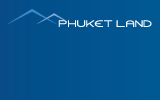Further Reading:
Market Still Boomimng?

Last week Australian, Bill Fraser asked whether Phuket’s property boom is well founded and should he be taking this into consideration in approaching his property purchase?
It is no secret that the Phuket property market is experiencing good times. This has been the case more or less since 1997 when the Baht’s devaluation provided a major stimulus to foreign investment in property in Phuket. The one event which threw this into doubt was the September 11 th outrages in The US which saw a softening of prices over the following twelve months. Interestingly however this was most prevalent in the less prime areas while truly prime sites and properties still received interest and transacted in appreciable numbers. Despite checks to the tourist industry cause by Sars and the bird flue scares both sales and rental transactions have increased dramatically over the last two years. The number of new real estate agencies, along with developments bear witness to this.
That however, does not answer the question as to why some areas of
Phuket see much higher values than others. The answer must be that while
land in it's very basic sense is just a unit of space for production,
there are clearly attributes that differentiate some land from other
land. Let me use the three terms "Proximity", "Branding"
and "Aesthetics" to try to explain that differentiation.
"As we do not have widely available financing options available to non Thais, the fundamentals of a cash based market still underlie the Phuket property scene. Even if sellers are under pressure to divest themselves of their properties, experience shows that owners with properties which have no debt, tend to hold out for better times rather than release them at whatever the market will give them. With the wide differentiation of client groups, from regional expats, to the established Northern European buyers to the newer Russian entrants, bargain hunters from Spain, and new Asian based buyers especially the as yet relatively untapped Chinese market both native and expat, the market here draws on buyers who are increasing both in absolute numbers and the areas in which they are based.
We are fortunate not to have a one dimensional pool of buyers, and are far less at risk of economic or political upheavals in only one world region. As prime land in Phuket is in relatively short supply there seems no logic why prices can be argued to be overvalued in these areas. Only a total world economic slowdown or a series of terrorist incidents seem likely to alter this dynamic.
Such optimism does not allow for an unreasoned approach to investment in the Island however. While in general there has been significant capital appreciation of prime properties, in less favored areas or estates, there are less than stellar performers and in cases only the inflationary trends in building supplies are keeping some owners in the black in terms of their property’s current values. Most such cases are the result of inappropriate location and overcapitalization along with disregard to sound architectural and stylistic notions which jeopardize future resale prospects. The experience after September 11 th of less prime properties supports this notion.
The plethora of inland development at almost all levels and in all niches of the overall market should cause buyers pause for thought. While it seems demand for the primer areas still outweighs supply, especially in built and nearly finished product, it is already noticeable that this is not the case with those developments perceived as off the beaten track or which offer no tangible attraction in terms of location over their competitors, especially as in the hinterland of Phuket there is much land able to be developed into copycat projects. This is even more stark when one examines sales trends in the secondary market where poorly designed, built and located properties can be difficult to sell on as buyers consider newer developments at off plan prices.
Understanding the fundamentals of demand and supply on Phuket is the easiest way to minimize one’s exposure to the negative aspects of a boomtime property market and maximize the opportunity for investment return.


